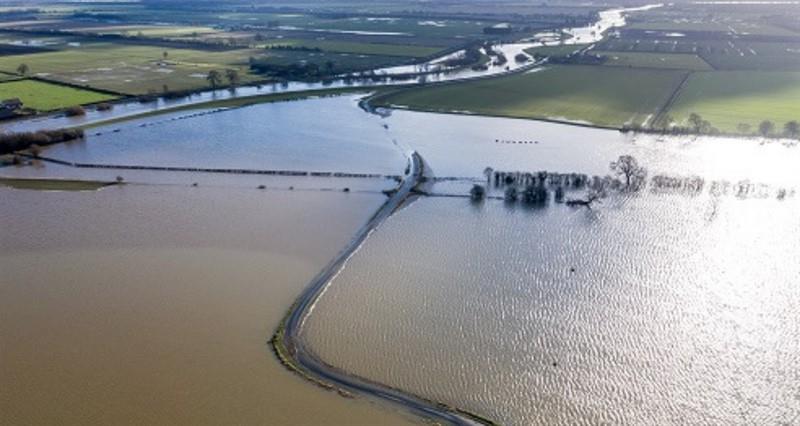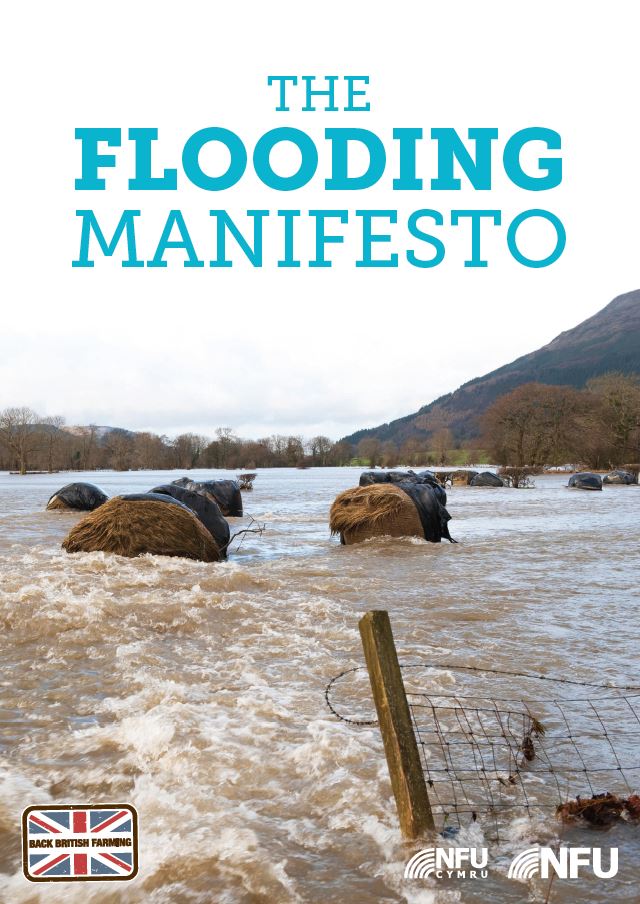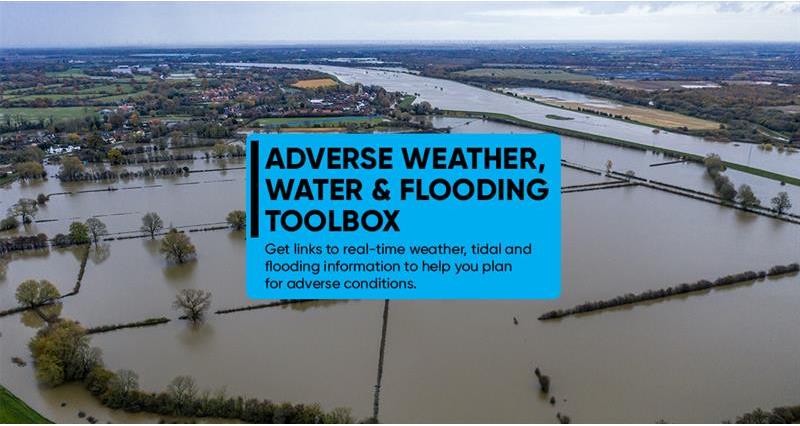Have you been affected? Steps to take now
Here are the first steps to take if you and your farm business have been hit by wet weather.
Step 1 – Report and record
Report incidents to the Environment Agency incident hotline by calling 0800 80 70 60.
Remember to keep a record of what you report, and when.
You should also start to gather evidence including videos, pictures and flooding impacts on your farm separately. Take photos of everything damaged by flood water to support claims. Even low value items can amount to considerable sums when added together. Trying to evidence loss after an event can be difficult.
Step 2 – Understand the impact on schemes and services
The RPA has recently updated advice for farmers and land managers whose land has been impacted by flooding. The guidance covers government services (TB testing, animal movement), agri-environment and woodland schemes.
Members concerned about the impact of flooding on schemes and services agreements should read this guidance to understand what course of action to take.
If you think the flooding will affect your ability to meet your agri-environment scheme agreement, you should read the guidance and, if needed, contact the Rural Payment Agency as soon as reasonably practicable.
If you have concerns about the impact of flooding on a scheme such as the England Woodland Creation Offer (EWCO) that is administered by the Forestry Commission rather than by the Rural Payments Agency, you should read the guidance and if needed contact the Forestry Commission directly.
See the below for further information on:
- Temporary measures and minor change requests
- Force majeure – given the current weather conditions the RPA have tweaked it for changes to notification in Force Majeure
- Reporting animal movements
- TB testing delays
Step 3 – Ensure you are aware of other considerations
EA advice: Slurry spreading in wet conditions
You can contact the Environment Agency to discuss options if your store is at risk of causing pollution and you cannot avoid spreading when you think there is a risk of slurry runoff, run-through to land drains or leaching, or you will breach an NVZ condition.
Watercourses
Remember your responsibilities if you are a riparian owner. Check the NFU’s Water Maintenance Solutions guidance pack for more information.
Report any issues with main rivers to the EA; issues with ordinary watercourses should be reported to an Internal Drainage Board (if in a drainage district), or to the local authority.
It is important to consider your own safety, and that of others, before carrying out any work during or after a flood. Consider risks from further high tides or high river flows before you start any work by checking flood warnings, river levels and the 5-day flood risk.
If you are clearing up after flooding or undertaking repairs in or near watercourses, then please contact EA for advice on 03708 506 506.
Recovering after a flood
The EA can help to ensure that you can undertake the necessary works to recover from flooding, using emergency provisions where possible. It will do this provided it is safe for you to do the work and the work doesn't cause any greater risk of flooding.
Download the EA's advice on what to do after a flood: Flood recovery advice for the agricultural sector
Our long-term asks from government:
Farmers who are intentionally flooded in order to protect people and property are performing a public good and should therefore be reimbursed for the public good being provided.
The NFU is therefore asking for:
- A review of the Flood Defence Grant in Aid cost-benefit analysis so that it sufficiently values agricultural land.
- The EA to prioritise essential maintenance of flood defence assets and watercourses. Whilst current funding prioritises concentrations of people and property, farmers experience a lack of maintenance of watercourses and coastal channels and reduced maintenance of banks and flood defence assets. The result is more frequent, more extensive and longer duration flooding events.
- The EA to improve communications on flood risk: systems for communicating with those affected must be accurate and reach the most remote communities, providing sufficient time for response.
The NFU believes that an integrated water management strategy should be developed which gives farmers and growers a central role in the better management of land to improve water quality and the better management of water to tackle the dual challenges of floods and droughts – while enabling them to keep feeding the nation.
Dredging as a flood risk management option
Dredging is essential as part of the maintenance regime for some of our watercourses, especially those within Internal Drainage Districts or low-lying land where there is not the gradient or velocity to remove the build-up of silt. However, the costs of carrying out desilting work is huge and often does not meet the criteria for the EA’s cost-benefit analysis which is set in policy by Defra. Catchment context and cost are not the only obstacles when it comes to dredging, there is a plethora of environmental regulations and flood risk assessments to overcome.
Dredging must remain a potential flood risk management tool in the right catchments but may not be a sustainable solution if the channel fills up quickly afterwards. Therefore, a whole catchment approach to flood risk management must be taken to help create an agricultural sector that is resilient to future flood risk.
Where to go for further help and support
- Visit the YANA website for contact details for organisations that can provide additional support, including R.A.B.I., and the Farming Community Network.
- You can also get more information on dealing with stressful and challenging situations by visiting the NHS England Every Mind Matters website.
- Visit our adverse weather, water and flooding toolbox for all the latest alerts, guidance and information on flooding and other extreme weather to help keep you and your business safe, including quick tips on using your mobile phone to send an emergency message or to share your location.
- Check out our business guide for advice on who is responsible if your land floods.



